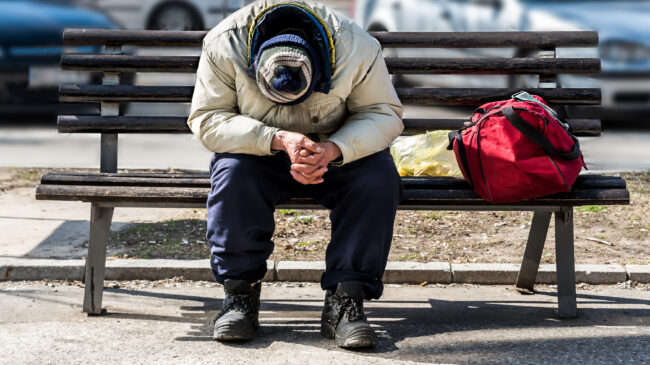While the 2020 election is being lauded for California’s record-setting voter turnout and engagement, it’s worth asking if it is time to try to depoliticize our lives a bit.
Consider the massive amount of money spent on the various 2020 campaigns amid the coronavirus pandemic. According to campaign finance data published by the California secretary of state, the committees supporting and opposing the 12 statewide measures on the November ballot raised over $660 million.
These committees spent their millions flooding mailboxes, Facebook, television, and radio shows with ads. In the weeks leading up to the election, it was commonplace for Californians to see back-to-back commercials supporting and opposing the same ballot measure, making contradictory claims and leaving many wondering what to believe.
It’s easy to note that if some of this campaign spending instead been devoted to directly assisting those in need, it could have created tangible benefits. For example, the AIDS Healthcare Foundation spent over $40 million to promote Proposition 21 — the rent control initiative that lost.
If, instead of promoting the unsuccessful ballot measure, had the foundation offered grants to the 135,000 Californians living with HIV, it could have provided each one with $300 of rent relief. Alternatively, it could have built dozens or possibly hundreds of housing units to help the neediest patients.
At the federal level. the Center for Responsive Politics estimates that the 2020 cycle saw $14 billion in presidential and congressional campaign spending — double the 2016 election’s total.
Although this number includes large donations from corporations and the ultra-wealthy, most of the money came from millions of small individual donations. If a quarter of these small campaign donors had instead sent their $25 checks to local food banks, fewer of our neighbors might be struggling with food insecurity during these difficult COVID-19 pandemic times.
As attention now shifts to the two Georgia runoffs that will determine political control of the US Senate, Dallas Mavericks owner Mark Cuban weighed in with a similar concern, recently tweeting:
“For those considering donating to Reps or Dems in the Georgia Senate run-offs, can you please re-consider and donate that money to your local foodbank and organizations that can help those without food or shelter? Let’s put Americans in need above Politics.”
Although Cuban took criticism for this comment, he hit the mark. Even though the two Georgia races are expected to be close, any one individual $25 contribution has a vanishingly small probability of shifting the outcome. But this same sum could provide dinner for a family whose breadwinners are currently unemployed.
Whether the 2020 campaign crowded out charitable donations and volunteering will not be known for some time, but the trendline looks worrisome to some. According to the University of Maryland’s Do Good Institute, the share of people donating to charity fell from 66.8 percent in 2000 to 55.5 percent in 2014, and the percentage of Americans volunteering (with non-political organizations) declined from 27.4 percent in 2002 to 24.9 percent in 2015.
If the public comes to see phone banking for political candidates as a substitute for working with disadvantaged children, families, and seniors, then this decrease in volunteer participation could accelerate.
Encouraging voters to choose politicians who claim they want to help the needy is not nearly the same as directly helping the needy because marginal efforts devoted to political campaigns are unlikely to change the outcome. And government initiatives conceived by politicians and staffed by career bureaucrats may not produce the same kind of results that groups of highly motivated volunteers, nonprofit groups and the private sector can.
As we enter the holiday season amidst the pandemic and relentless political drama in Washington, D.C., it’s a good time to think about how to make politics a smaller part of our lives and how we might better use our money, our time, and our passion to help our neighbors.
A version of this column previously appeared in the Los Angeles Daily News.

